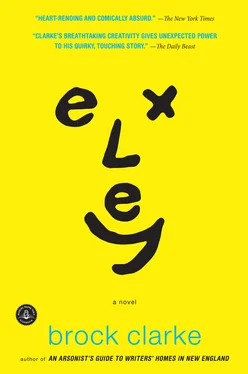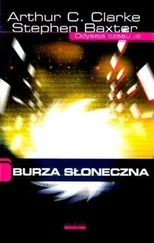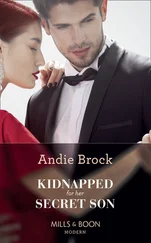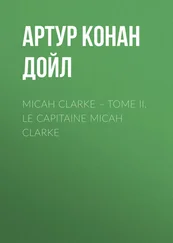“I remember now,” I said. I reached into my desk and pulled out my copy of the book. I’d read the book the Friday before, in the nine five-minute periods between when one class ended and the next began.
“Good,” Mrs. T. said. Then she looked at us with big, hopeful eyes. We were probably looking at her the same way. None of us knew what we were supposed to do next. I think America on the Same Page’s idea was that after reading the book, we wouldn’t be able to look at the world in the same way, and if that were the case, then we wouldn’t be able to talk about it in the same way, either. But how were we supposed to see it? How were we supposed to talk about it? I think we expected Mrs. T. to tell us; I think she expected us to tell her. But we weren’t going to tell her anything. You could see Mrs. T. realized this, too. It was scary, a little, to watch Mrs. T. become less hopeful and more resentful as she realized that maybe America was on the same page, but we definitely were not. Her eyes got smaller and smaller as she tried to figure out what to do. Finally, she opened to page — of the book and told us to do the same. We did. Then Mrs. T. put on her glasses (they’d been hanging on a black string around her neck) and read this passage:
It was finally morning. It had stopped raining and the sun had begun to shine and there was a rainbow arcing yellow and blue and bloodred over the battlefield and the steaming bodies of the men and their horses. The ones that were still alive were moaning in the newdawn; the ones that were dead were dead. The boy realized how awful it was to be dead, because once you were dead, that was all there was to be said about you anymore. “My father is dead,” the boy said. It felt terrible to say that. “But I am alive,” the boy said, and that felt wonderful. And then the boy realized why there had been wars and why there would always be wars: because it was better to be alive than to be dead. The boy shouldered his father’s rifle and whispered, “Go,” in his father’s horse’s ear. And they went.
When Mrs. T. was done reading, she took off her glasses, looked at us, and asked hopefully, “Well, what do you think?”
No one said anything at first. The only sound was Harold tapping his pencil against his forehead. This was how he thought. Everyone else was quietly looking down at their desks, waiting for Harold to say something first. Because Harold was always the one who said something first.
“I didn’t like the part about the rainbow,” Harold finally said.
“You didn’t,” Mrs. T. said. It wasn’t a question. Her voice was so flat you could have slept on it.
“Because you don’t even need rain,” Harold said. “I went to Niagara Falls this summer. There was a rainbow , but no rain . Only water. It should be called a waterbow. That’s what I feel.”
“So whatever,” L. said. “I thought it was pretty great. Especially during the battle and the nasty hand-to-hand stuff.” L. was talking about the part before the part Mrs. T. had read, when some of the soldiers ran out of ammunition and so had to try to stab one another with their bayonets. L. was a brown belt and loved anything to do with hand-to-hand combat. He turned back a page and read: “‘The boy raised his bayonet, and for a moment it glistened in the silvermoonlight like some message from God, and then the boy thrust it through the chest of a boy not much older than he and then withdrew the bayonet, which made a terrible sucking sound as it left the other boy’s body, and then the other boy fell to the ground and did not move and would never move.’ Awesome,” L. said.
“By ‘awesome,’ you mean ‘terrible,’” Mrs. T. said.
“Well, yeah,” L. said.
“But why is the horse white?” P. asked. “Why’d the writer have to make that horse be a white horse?”
“Good point, P.,” Mrs. T. said. “It’s problematic.” They had this sort of conversation all the time: P. always asked Mrs. T. why something had to be either black or white, and Mrs. T. always answered him carefully, like she was trying hard to give the answer P. wanted so that they could talk about something else, anything else. “Why did the author have to make the horse white? Exactly.”
“But then again,” P. said, “it had to suck being that white horse, being sat on all the time by that bloody, gross white boy. White boy sitting on white horse. It’s like sitting on yourself or something.” P. paused for a second, trying to work all this out in his head. “It’s like everything white is his own worst enemy. Maybe that’s what the writer was trying to say.”
Mrs. T. nodded and wagged her finger at P. in an excited yes-I-think-you’ve-hit-the-nail-right-on-the-head sort of way. “Exactly,” she said, and then she turned to J. and asked, “What about you, J.? What do you think?”
Everyone looked at J. She was fingering her scar, and I could tell she was trying not to cry. J.’s father was in Iraq. Everyone’s father or mother, it seemed, was in Iraq. But J. was the only one trying not to cry about it. I wondered if that meant something had happened to her father the way something had happened to mine. Everyone but me looked away from her; even Mrs. T. pretended to be very interested in something underneath one of her fingernails. “I think it’s bullcrap, ” J. finally whispered, so softly that you could pretend you didn’t hear it, which is exactly what
Mrs. T. did.
“And you, Miller?” Mrs. T. said. I knew that Mrs. T. didn’t like me. All my other English teachers had liked me, but not Mrs. T. Maybe because on the first day of class, when she’d asked what I’d read over the summer, I’d told her I’d read sixty-three books. She’d put her hands on her hips and pinched her lips and looked at me like I had done something wrong. I had been about to explain that some of those books were pretty short, which wasn’t even true. But L. didn’t give me the chance.
“So,” L. had said, “I find when it comes to reading, quality is more important than quantity.”
“Very good, L.,” Mrs. T. had said. “That’s using your mine-duh.”
Anyway, Mrs. T. was waiting for me to say what I felt about the America on the Same Page book. What I felt when I was reading it was what I felt now: I wanted it to be over so I could read something else. I mean, it was fine. It was a book, and so it couldn’t be that bad. But it wasn’t as good as it could have been. At one point in the book, the boy realized that “the world was killing and death.” Really? I wondered when I read that. Is that all the world is? And if that’s all the world is, then can’t books be about something else? Anything else? Exley’s book had been written during the Vietnam War, and it was about the war a little, but mostly it was about a bunch of other things. I wondered if this war would have to be over before A Fan’s Notes could be chosen as an America on the Same Page book. Except the way things were going, it seemed like the war would never be over. And if the war were never over, then we’d keep reading books about war, and A Fan’s Notes would never be an America on the Same Page book. That seemed terrible to me, more terrible than any of the terrible things that happened in the America on the Same Page book; I couldn’t stand for it to be true. I wondered if my dad couldn’t stand for it to be true, either, and if this was why he joined the army and went to Iraq in the first place: to help the war end so that people could stop reading the books they were reading or start reading A Fan’s Notes . That made some sense, but not enough sense. Because my dad loved A Fan’s Notes so much that he basically didn’t do anything the book didn’t tell him to, and there was nothing in the book that said he or anyone else should go to war or do anything else, really, except drink beer and sit on the davenport and read. But my dad went to Iraq anyway. Did that mean he’d decided that the boy in the America on the Same Page book was right, that the world was nothing but killing and death, and that if that were true, then he’d better stop reading A Fan’s Notes and get off the davenport and join the rest of the world? That seemed more terrible than anything else; I couldn’t stand for it to be true, either, just like I couldn’t stand to just sit around and watch my dad in his hospital bed. This was why, of course, I had to find Exley. And this was also why, during this entire time, I was writing a list of Exley’s favorite sayings and expressions. I figured it’d be easier to recognize him if I knew the way he talked by heart. I was so into writing the list that I didn’t notice that Mrs. T. had walked up to my desk until she reached down and snatched up the piece of paper. She read it, her face getting redder and redder; I could feel my face getting redder and redder, too, especially when Mrs. T. handed me back the piece of paper and asked me to please stand up and read what I’d written out loud. I really didn’t want to do it. But when Mrs. T. was asking me to do it, she was really telling me. When a teacher tells you to do something, you have to do it, especially if you don’t want to. This is what it means to be educated.
Читать дальше












